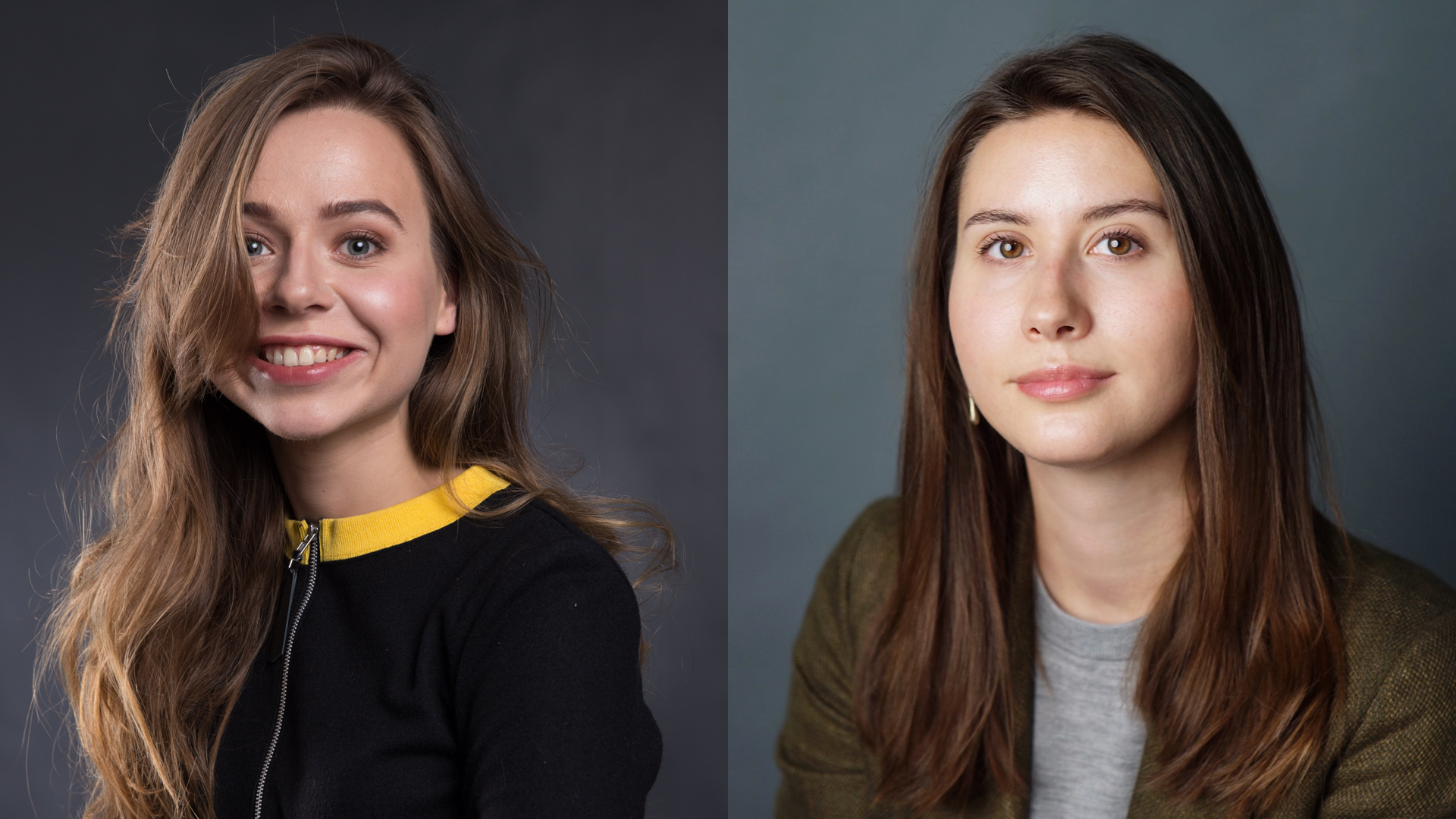2020 results: Alexandra Kurdyumova and Alina Davletshina from VERSUS.legal on the main thing for the year in gaming law
We continue to summarize the results of 2020 together with top managers and experts of the gaming industry (and related ones). Next up are interviews with Alexandra Kurdyumova, Senior Partner at VERSUS.legal, and Alina Davletshina, Senior lawyer at VERSUS.legal. They told us what was the main thing in gaming law in the past year.
Alexandra Kurdyumova and Alina Davletshina
How was 2020 for the company?
Alexandra: Despite all the difficulties and worries, this year has been surprisingly productive for us. So, this year we launched a separate line within the company – VERSUS.gamedev. This is an internal team of lawyers that supports only gaming companies and projects without limitation by jurisdiction.
Before that, there were a lot of clients from the gaming industry at VERSUS.legal, but this year – when we identified a separate area – there were significantly more projects, and many guys began to work with us constantly.
During this year, we successfully removed the copycat game from Google Play and blocked cheat code videos on YouTube, helped several companies move abroad and transfer their assets there, applied for trademark registration in 30 jurisdictions, helped several indie studios launch their games and convince foreign publishers to agree on normal conditions that are comfortable for both sides.
In October, we launched a legal knowledge base, which we have been working on for several months. It has collected materials to help a novice developer get through the legal jungle. We are currently working on its development and try to regularly update it with new information.
He also participated in several conferences and several of his own publications. But, of course, we're just accelerating.
We are sad that this year there were no offline conferences, and most of the meetings and discussions were in the zoom. We really hope that 2021 will not fail, and there will be meetings with old and new friends again, trips, exhibitions and conferences, which have been so lacking lately.
What laws and proceedings were worth paying attention to this year?
Alina: In Russia, every year the laws become more and more interesting. Let's just say that lawyers are only getting more work.
- This year, in a sense, it was a surprise to cancel the tax benefit for licensed programs and replace it with benefits for "domestic" software (but without such a strict restriction on the qualification of the transaction). So far, judging by the registry, Russian game developers are in no hurry to include their projects in this list, but perhaps due to the long review period before the New Year, next year we will see a boom in "joining the ranks" of domestic programs.
- Since October 1, Roskomnadzor has received the authority to block mobile applications with copyright-infringing content if they refuse to remove it. The removal process will also involve app stores, which have already confirmed their willingness to work with Russian regulators.
- Meanwhile, there is a campaign going on in the world against loot boxes in games. Cases with unknown contents have been banned in the Netherlands. The Entertainment Software Rating Board (ESRB), the organization responsible for the adoption and determination of ratings for video games in the United States and Canada, has introduced separate labeling for games with loot boxes since April 2020. In China, they demand to limit the number of loot boxes purchased per day (no more than 50 per player) and guarantee transparency in the chances of losing valuable items before opening the case itself. We are waiting for developments in 2021.
- Also on July 12, a new regulation began to take effect in Europe regarding how app marketplaces (including the App Store and Google Play) should work. New requirements have been introduced for transparency in the formation of ratings and search results, information about personal data collected, as well as the removal or non-admission to the publication of applications.
- The lack of transparency in the procedure for publishing Apple applications has recently been recognized in Russia: The Federal Antimonopoly Service found that Apple abused its dominant position in the market by restricting access to the App Store to third-party parental control applications. Prior to that, Kaspersky Lab complained about the unjustified rejection of its Kaspersky Safe Kids (KSK) parental control program, while Apple simultaneously implemented its own feature with similar functionality in iOS 12. The company's order has already been issued, we are waiting to see what the results of the appeal will be.
- The most high-profile case of 2020 is, of course, Apple againstEpic Games. It has not ended yet (knowing the timing of the proceedings in the United States, we can say it has just begun), and its consequences are already enormous. First, Apple has already agreed to reduce its commission from 30% to 15% for developers whose applications earn less than $1 million (there were about 98% of those in the App Store in 2019, but they accounted for less than 5% of all App Store revenue). Secondly, it seems that this dispute has already spread beyond the United States: the European Union has launched an antitrust investigation against Apple (according to Spotify's complaint). They will focus on the issues of forced use of one payment system in the store, which charges a 30% commission and prohibits informing users about alternative payment methods outside the application.
- Back in 2020, the trend towards personal data protection continued to strengthen. CCPA, a California law in this area with new requirements and high fines, has been in effect since July. Apple has also decided to strengthen its privacy requirements: an instruction has appeared to obtain direct consent to the processing of IDFA, applications will be marked with an indication of the data they collect, developers will be required to provide a link to the Privacy Policy on the application page.
- Another important news: the data exchange agreement between the EU and the United States, known as Privacy Shield, has been canceled in connection with a lawsuit by data protection activist Max Schrems from Austria. The court overturned the decision of the European Commission regarding the adequacy of user data protection provided under the Data Protection Shield between the EU and the United States. Now the United States is becoming for Europeans "a country that does not provide adequate protection" (at the level of Russia), and according to the rules of the General Data Protection Regulation (GDPR), the transfer of user data from the EU to the United States is becoming much more complicated.
What legislative initiatives do you expect from next year?
Alina: So far, I'm set up for the new year with legal skepticism.
On January 1, 2021, the rules on pre-installing Russian software on smartphones and laptops will come into force (and it is unknown how the main manufacturers and distributors will react to this).
In September 2021, the norms of the "Spring package" should come into full force (in general, game chats are fully covered by it).
As for the bills that have every chance of becoming full-fledged laws next year, perhaps it is worth keeping an eye on these first of all:
- the act on discrimination of the Russian media by foreign social networks and Internet platforms (provides for the possibility of imposing a fine, blocking and (this is a novelty!) traffic slowdowns);
- the project on granting developers the rights to what was created by artificial intelligence (one of the first in the world!);
- a project to ban encryption protocols that allow you to hide the name (identifier) of an Internet page or site. Violation of this prohibition will result in the blocking of the resource.
a bill prohibiting the use of publicly available data of citizens without the consent of their owner (apparently, this is a response to the VK and Double Data disputes and similar ones).
What game releases are you interested in this year? What kind of attention did you pay specifically as a gamer?
Alina: For me, the game of the year (despite the release at the end of 2019) was the game Disco Elysium, which I played and replayed several times in 2020. Playing as a drunk detective who does not remember who he is, why he is in the city of Revashol, and what kind of corpse is hanging in the courtyard of his hotel turned out to be surprisingly therapeutic.
Playing, it seems to me, you can achieve complete zen: Disco Elysium teaches that it doesn't matter what your inner voice tells you: it lets you down no less than it helps. That the inner demons will win if they are fed. That you can always try to do your job well. That often life is just a series of unfortunate accidents, and any of them can lead to the loss of love or one's own sanity. In general, the drunk detective from Disco Elysium becomes both a friend, a philosophical drinking buddy, and a therapist.
And I also asked this question to other lawyers of our firm, and that's what they called most often: Valorant, Doom Eternal, Hades, The Last of Us II, a remake of the first Mafia and Resident Evil 2.
And, of course, we are all waiting for Cyberpunk 2077 together!

